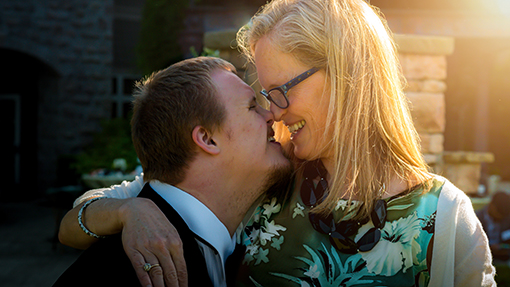
We’ll be repeating this work once the latest Census data is available.
We wanted to build a picture about the working lives of carers; whether and how caring might be impacting their income; and how their incomes differed (if at all) from those of non-caring New Zealanders.
The Infometrics work also provided an opportunity learn about carers’ gender, ethnicities, ages, where they live, and to compare these demographic snapshots against workforce participation and income trends.
Unlike other countries, New Zealand does not have a clear picture about who its carers are. But the Infometrics analysis gave a useful peek.
In broad terms, Census data shows that two thirds of New Zealand’s carers are women, most in middle age. Almost 90% are of workforce age 15-64. With people now routinely working beyond the age of 65, we expect the latest Census data to reveal that carers (like other New Zealanders) are working at least part-time into older age. If they can.
Carers are a large slice of New Zealand’s overall workforce.
But we don’t have a true demographic view of New Zealand’s caring population because we’ve never invested in broad research, or a special Census survey, to show the full picture. If we did this, we would no doubt find the same eye-popping result as other countries – that as many as 1 in 4 to 5 of the population have caring responsibilities which can severely impact their economic, physical, and mental wellbeing and their ability to participate in paid work.
We are all the poorer for not having this data because issues for carers, and how they entwine with those of our broader society, would help New Zealand better target support for carers, their families, employers, and the economy.
Meanwhile what Infometrics did find is that the annual economic value of the unpaid work carers do is at least $10b a year. That’s a big number.
On top of valuing this unpaid work, the Infometrics analysis usefully confirmed that family carers are a diverse bunch. They are highly skilled across a range of industries. They often work part-time because they have to. They need flexibility more than other workers and often work below their skills and qualifications, taking roles close to home for example so they can spend more time working, earning, and caring, and as little time as possible commuting.
Carers shave some of their earning potential because of this juggle, earning 10% less on average than non-caring New Zealanders.
More than 60,000 young people aged 14 to 24 care for someone in their home or in another location. We know that early work experience can be disrupted by too much caring and that this can have lifetime economic impacts for young workers. We know that young caring is a factor in early withdrawal from tertiary studies in New Zealand, especially among Maori and Pacific students. There is so much more we need to know about these young workers who care. We have but a glimpse currently.
The Infometrics Census analysis answered some questions but raised many more. We hope to get answers in an updated comparison of carer population metrics when the new Census data is available, and we’ll share this with CareWise employers.
Meanwhile we will leave you with some general clues that can help you better understand employees who are also carers – the 1 in 8 of your workforce who will appreciate the efforts you are making to be a carer friendly employer.
Laurie Hilsgen is Carers NZ’s chief executive. Photo: Nathan Anderson, unsplash.com